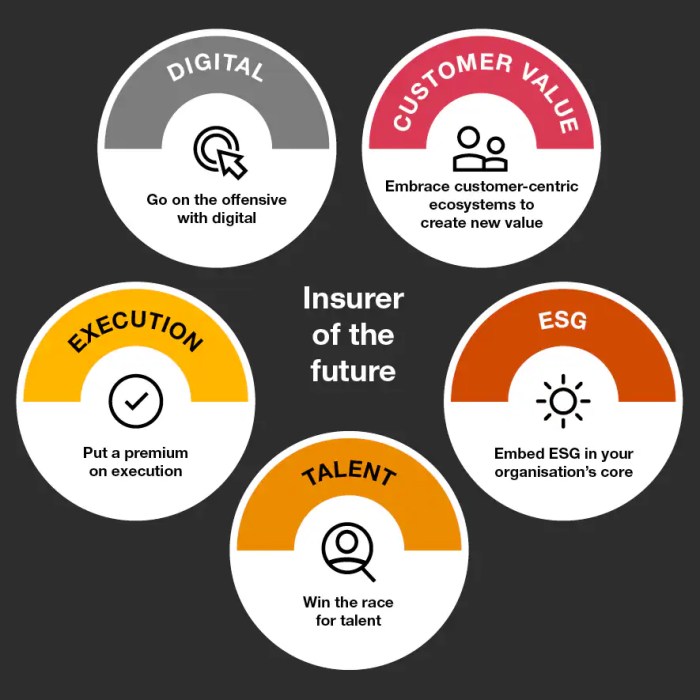Embark on a journey into the realm of Venture-Backed Business Insurance Options in 2025, where innovation and necessity collide to shape the landscape of insurance for businesses backed by venture capital. This introduction sets the stage for an insightful exploration of the evolving trends and challenges in the insurance sector for such enterprises.
In the following paragraphs, we will delve deeper into the various facets of insurance coverage, emerging technologies, regulatory compliance, and more, providing a comprehensive understanding of the subject matter.
Overview of Venture-Backed Business Insurance in 2025

Venture-backed businesses have a history of receiving financial support from investors who believe in their growth potential. These businesses often operate in high-risk environments and require strategic planning to mitigate potential losses.
Insurance plays a crucial role in protecting venture-backed businesses from various risks such as liability claims, property damage, cybersecurity threats, and more. It provides a safety net that allows these companies to focus on innovation and growth without the fear of financial ruin in case of unforeseen events.
Key Trends Shaping Insurance Options for Venture-Backed Businesses in 2025
- Customized Policies: Insurance providers are offering more tailored policies to meet the unique needs of venture-backed businesses. These policies may include coverage for intellectual property, business interruption, and other specific risks.
- Technology Integration: Insurtech companies are leveraging technology such as artificial intelligence and blockchain to streamline the insurance process for venture-backed businesses. This includes faster claims processing, risk assessment, and personalized pricing.
- Cyber Insurance Expansion: With the rise of cyber threats, insurance options for venture-backed businesses now include comprehensive cyber insurance coverage. This helps protect against data breaches, ransomware attacks, and other cyber risks that could disrupt operations.
- Evolving Risk Landscape: As venture-backed businesses continue to innovate and expand globally, insurance options are adapting to cover new types of risks that may arise. This includes coverage for political instability, supply chain disruptions, and environmental liabilities.
Types of Insurance Coverage for Venture-Backed Businesses
When it comes to insurance options for venture-backed businesses, there are several types of coverage that cater to their specific needs and challenges. It is essential for these businesses to protect themselves from various risks and uncertainties that come with operating in a dynamic and competitive market.
1. General Liability Insurance
General liability insurance is crucial for venture-backed businesses as it provides coverage for third-party bodily injury, property damage, and advertising injury claims. This type of insurance protects businesses from lawsuits and claims that could potentially harm their reputation and financial stability.
2. Directors and Officers (D&O) Insurance
D&O insurance is designed to protect the personal assets of directors and officers of a company in case they are sued for alleged wrongful acts in managing the business. This coverage is vital for venture-backed businesses as it helps attract top talent to serve on their board and provides a safety net in case of legal disputes.
3. Cyber Liability Insurance
In today's digital age, cyber liability insurance is essential for venture-backed businesses that rely on technology and data to operate. This coverage helps protect against cyber threats such as data breaches, hacking, and other cybercrimes that could result in significant financial losses and reputational damage.
4. Key Person Insurance
Key person insurance is another important coverage for venture-backed businesses, especially those that heavily depend on the expertise and leadership of key individuals. This type of insurance provides financial protection in case a key executive or employee becomes unable to work due to illness, injury, or death.
5. Employment Practices Liability Insurance (EPLI)
EPLI coverage is crucial for venture-backed businesses as it protects against claims of discrimination, harassment, wrongful termination, and other employment-related issues. This insurance helps mitigate the risks associated with employee lawsuits and ensures compliance with labor laws and regulations.
Emerging Technologies Impacting Insurance for Venture-Backed Businesses
AI, blockchain, and IoT are revolutionizing the insurance landscape for venture-backed businesses by providing innovative solutions and enhancing efficiency.
Artificial Intelligence (AI) in Insurance
AI is being utilized in underwriting processes to analyze vast amounts of data and assess risks more accurately. Chatbots powered by AI are improving customer service by providing instant responses and personalized assistance
Blockchain Technology in Insurance
Blockchain technology ensures secure and transparent transactions, reducing the chances of fraud and improving the claims process. Smart contracts on blockchain enable automatic claim settlements when predefined conditions are met, streamlining the process for venture-backed businesses. For instance, blockchain can facilitate the verification of insurance policies and ensure authenticity in a decentralized manner, enhancing trust between insurers and insured parties.
Internet of Things (IoT) in Insurance
IoT devices such as sensors and wearables are transforming insurance by providing real-time data on risks and enabling preventive measures. For venture-backed businesses, IoT devices can monitor equipment health, track inventory levels, and assess environmental factors to prevent potential losses.
For instance, connected devices can alert businesses about maintenance issues or safety hazards in advance, reducing the likelihood of insurance claims and promoting risk management practices.
Overall, the integration of AI, blockchain, and IoT in insurance for venture-backed businesses offers improved efficiency, accuracy, and risk mitigation. However, it also raises concerns about data privacy, cybersecurity, and potential biases in automated decision-making processes.
Regulatory Environment and Compliance for Venture-Backed Business Insurance
When it comes to venture-backed business insurance, the regulatory environment plays a crucial role in shaping the available options and coverage. Compliance requirements set by regulatory bodies have a direct impact on the insurance decisions made by these companies. Navigating through the complex regulatory landscape is essential for ensuring adequate coverage and protection.
Impact of Regulatory Environment on Insurance Options
- The regulatory environment dictates the minimum insurance coverage required for venture-backed businesses to operate legally. This includes coverage for liabilities, property damage, and other risks specific to the industry.
- Regulatory changes and updates can also affect the cost of insurance premiums, as companies may need to adjust their coverage based on new requirements set by regulatory bodies.
- Compliance with regulations is not only a legal obligation but also a risk management strategy for venture-backed businesses. Failing to comply with regulatory requirements can result in penalties and legal consequences.
Navigating Regulatory Challenges in Insurance Sector
- Engaging with legal advisors and insurance experts can help venture-backed businesses understand and comply with regulatory requirements effectively. These professionals can provide guidance on the specific insurance needs based on the regulatory landscape.
- Regularly reviewing and updating insurance policies in line with regulatory changes is essential to ensure continuous compliance. Companies should stay informed about any new regulations that may impact their insurance coverage.
- Implementing robust internal processes and controls to monitor compliance with insurance regulations is key to avoiding any potential fines or penalties. This proactive approach can help mitigate risks associated with non-compliance.
Ultimate Conclusion

As we draw to a close, we reflect on the dynamic nature of venture-backed business insurance options in 2025. From the integration of cutting-edge technologies to the ever-changing regulatory environment, the future holds both opportunities and challenges for businesses seeking insurance solutions.
Essential FAQs
What are some key trends shaping insurance options for venture-backed businesses in 2025?
Some key trends include increased customization of insurance policies, integration of AI for risk assessment, and the rise of on-demand insurance solutions tailored for startups.
How do emerging technologies like blockchain impact insurance offerings for venture-backed businesses?
Blockchain technology enhances transparency and security in insurance transactions, enabling faster claims processing and reducing fraudulent activities.
What strategies can venture-backed companies employ to navigate regulatory challenges in the insurance sector?
Venture-backed companies can collaborate with regulatory experts, stay updated on industry regulations, and implement robust compliance frameworks to ensure adherence to legal requirements.









